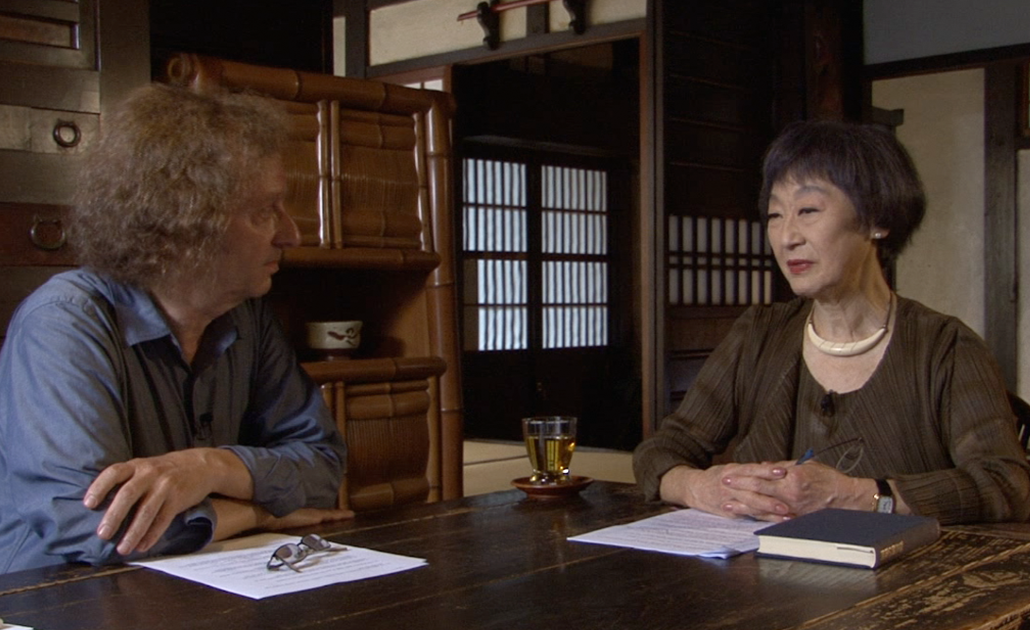This project will include several new video interviews with artists, craftsmen and thinkers. Of particular significance is our interview with Mihoko Okamura, who is central to the history of the Mingei Movement, having known directly most of its key figures.
Ms. Okamura was born in the United States in 1935. She was the personal assistant to D.T. Suzuki, from 1953 until his death in 1966.
During her long association with Dr. Suzuki, Mihoko Okamura came to know Bernard Leach, Hamada Shoji and Yanagi Soetsu, a younger colleague of Suzuki, who concentrated his thinking on Buddhist ideas of beauty.
This legacy, leading from Suzuki through Yanagi to the craftsmen themselves, has never been sufficiently examined.
After Suzuki’s death Bernard Leach, who did not read Japanese, requested Mihoko’s help in translating essays by Yanagi. He invited her to St. Ives on two occasions where they worked together on The Unknown Craftsman (1972) and the yet to be published The Gate of Beauty, Yanagi’s central work.
In 1973 she translated conversations between Leach and Hamada, for what was to become the text for the book Hamada, Potter by Leach, published in 1975.
My exclusive video interview with Mihoko Okamura took place on July 29th, 2013 at the Kanjiro Kawai Memorial Museum. For close to six hours we discussed the intellectual connection between Suzuki and the Mingei Movement. Though frequently interviewed by the Japanese media, this was the first extensive interview with Mihoko Okamura in English. As a direct link to the central figures, she provided unique and direct insight on the background of the Mingei Movement and the transmission of its central ideas.
I was introduced to Mihoko Okamura in 1975 by Bernard and Janet Leach and have remained in close contact with her ever since. She is now the only person able to speak in English about direct contact and collaboration with Leach, Hamada and Yanagi. It was my privilege to conduct this video interview at the Kawai Kanjiro House, the museum dedicated to the memory of Kanjiro Kawai, another of the founding members of the Mingei Movement.

